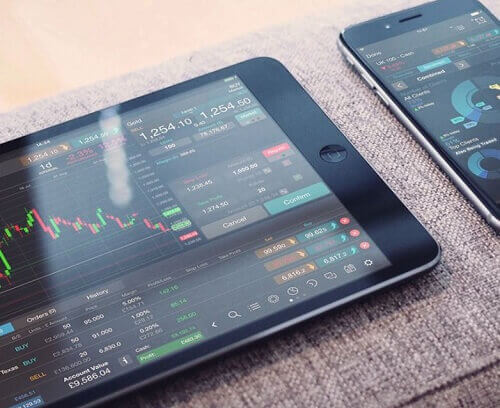When we refer to BAT, we’re actually talking about three major technology companies based in China. BAT is an acronym representing Baidu, often referred to as the Chinese equivalent of Google; Alibaba Group Holding, a colossal e-commerce entity; and Tencent Holdings Ltd., a diversified conglomerate with a significant presence in various technology sectors.
It’s common to draw parallels between the performance of these three Chinese tech giants and the FAANG stocks in the United States.
The FAANG stocks consist of Facebook, Amazon, Apple, Netflix, and Alphabet (Google’s parent company).
Both BAT and FAANG are influential groups of companies that play pivotal roles in shaping and driving the technology landscape in their respective regions.
Understanding the dynamics and stock performance of these companies provides valuable insights into the global technology industry.
More on BAT
The assessment of BAT stocks as solid investment opportunities stems from the perception of the rapid growth of the Chinese economy.
Supporters of this viewpoint argue that Chinese companies, with their substantial domestic market, possess a considerable advantage over their U.S. counterparts.
Notably, in areas like mobile payments, Chinese companies, including those in the BAT group, have demonstrated significant advancements and competitiveness.
However, contrasting opinions exist, expressing concerns about the volatility of Chinese stocks.
Critics point to the susceptibility of Chinese stocks to market swings, and some argue that the overall technology sector, both in China and globally, is exhibiting characteristics of being overvalued.
Understanding the historical context of BAT companies sheds light on their financial standing as of 2021.
It’s essential to delve into the financial performance, market trends, and regulatory landscapes to make informed assessments about the investment potential of these companies.
In the ever-evolving and dynamic realm of investments, careful consideration of various factors, including economic conditions, market dynamics, and global trends, is crucial for investors seeking to navigate the complexities of the stock market and make informed decisions.
Baidu
Baidu, founded in 2000 by Robin Li and Eric Xu, predates the emergence of Bitcoin by nearly a decade. Often referred to as the “Google of China,” Baidu has solidified its position as the most popular search engine in the country.
Their impact is extensive, reaching over one billion devices each month, showcasing the widespread use of their products and services.
Listed on NASDAQ since 2005 and also on the Hong Kong stock exchange, Baidu operates as a comprehensive platform.
While similar to Wikipedia in providing information, Baidu’s model involves a more controlled editing process compared to the open editing structure of Wikipedia.
In addition to search services, Baidu offers a diverse range of products, including maps, music, and social media.
Notably, the company is actively involved in cutting-edge technologies such as artificial intelligence and self-driving research, positioning itself at the forefront of technological innovation.
Financially, Baidu boasts a capital of $58 billion and holds a commanding 76% market share in China. With a revenue of $16.4 billion in 2020, Baidu’s robust performance underscores its significance in the Chinese tech landscape.
As the company continues to evolve and diversify its offerings, its influence on the technology sector remains a key aspect to watch.
Alibaba
Just like Baidu is the equivalent of Google in China, Alibaba is also the amazon of china. This company was founded by billionaire Jack Ma, who was then an English teacher along with 18 other people in 1999.
The company deals in e-commerce, cloud computing, entertainment, and digital media. It operates through two portals which are Taobao and Tmall.
Alibaba also owns Alipay which is a payment service that offers financial services for users as well as merchants on the Alibaba platform. Alibaba now boasts active users of over 1.18 billion annually, which is a milestone for the company, with 912 million of these in China and the remaining outside china.
Alibaba has a market cap of $476.96 billion and revenue of $109.48 billion for 2021. This is a 42% increase from the previous year’s revenue.
As of now, the CEO of the tech giant is Daniel Zhang, taking over from Jack Ma since 2015.
Tencent
Founded in 1998 in china, Tencent is a tech company that offers a wide range of tech products such as social media, music, web portals, e-commerce, mobile games, payment systems, smartphones, and the internet.
It is the owner of the chat app WeChat, which has over a billion users per month and is used in China. WeChat is used in China because Whatsapp is not allowed in China since 2017.
Tencent also supports other services and features and it owns Clash of Clans, which is an online multiplayer game that has millions of users. As of now, Tencent has a market cap of $646.74 billion and brought revenue of $74.69 billion in 2020. The CEO of Tencent is Pony Ma.
Conclusion
So now you know what BAT means. Whenever you hear BAT, you know that whoever said it is referring to Baidu, Alibaba, and Tencent, the biggest tech firms in China.



